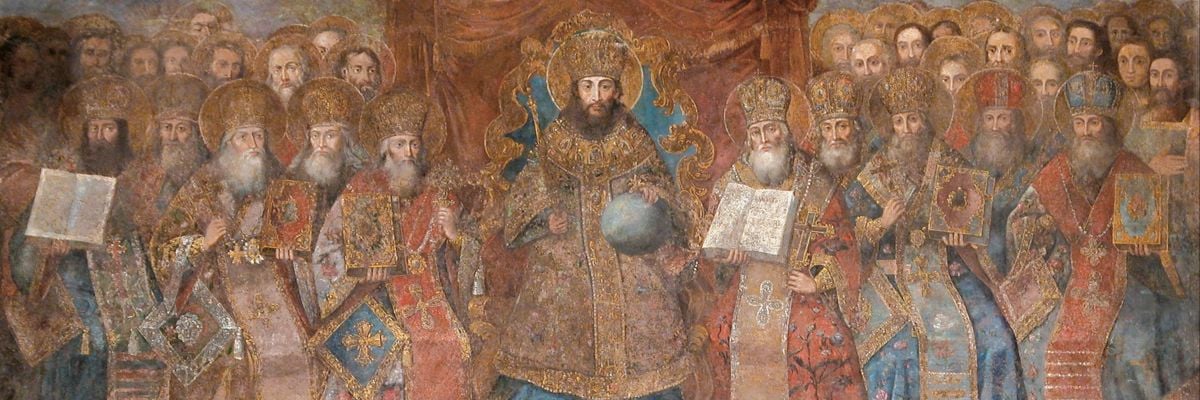That is the heresy of
Arianism. a heresy that Christianity declared anathema in the fourth century.
The arch-heretic Arius was made a presbyter in 313 AD, and had the charge of a district in
Alexandria called Baucalis. In 318 AD, his quarrel with
Bishop Alexander broke out over the fundamental truth of Our Lord’s divine Sonship and substance. (See
Arianism.) He was condemned at
Alexandria in 321 AD and excommunicated.
In response to the heresy of
Arianism The
First Council of Nicea, formulated the Creed which is still recited today, The following is a literal translation:
We
believe in one
God the Father Almighty, Maker of all things visible and invisible; and in one
Lord Jesus Christ, the only begotten of the Father, that is, of the
substance [
ek tes ousias] of the Father,
God of
God, light of light,
true God of
true God, begotten not made, of the same substance with the Father [
homoousion to patri], through whom all things were made both in
heaven and on earth; who for us men and our
salvation descended, was incarnate, and was made man, suffered and rose again the third day,
ascended into heaven and cometh to judge the living and the dead. And in the
Holy Ghost. Those who say: There was a time when He was not, and He was not before He was begotten; and that He was made out of nothing (
ex ouk onton); or who maintain that He is of another
hypostasis or another substance [than the Father], or that the
Son of God is
created, or mutable, or subject to change, [them] the
Catholic Church anathematizes.
Today we say:
I believe in one God, the Father almighty, maker of heaven and earth, of all things visible and invisible.
I believe in one Lord Jesus Christ, the Only Begotten Son of God, born of the Father before all ages. God from God, Light from Light, true God from true God, begotten, not made, consubstantial with the Father; through him all things were made. For us men and for our salvation he came down from heaven, and by the Holy Spirit was incarnate of the Virgin Mary, and became man. For our sake he was crucified under Pontius Pilate, he suffered death and was buried, and rose again on the third day in accordance with the Scriptures. He ascended into heaven and is seated at the right hand of the Father. He will come again in glory to judge the living and the dead and his kingdom will have no end.
I believe in the Holy Spirit, the Lord, the giver of life, who proceeds from the Father and the Son, who with the Father and the Son is adored and glorified, who has spoken through the prophets.
I believe in one, holy, catholic and apostolic Church. I confess one Baptism for the forgiveness of sins and I look forward to the resurrection of the dead and the life of the world to come. Amen.
The second paragraph makes clear that Jesus is God.
And for perspective, this all happened before the church even ratified the 27 books of the New Testament. The Church under
Pope Damasus I in the late 4th century ratified the 27 books of the New Testament, decades after the
Divinity of Christ was Christian Dogma.
Yes.
The man who gets his theology, and prizes, from Crackerjack boxes.


